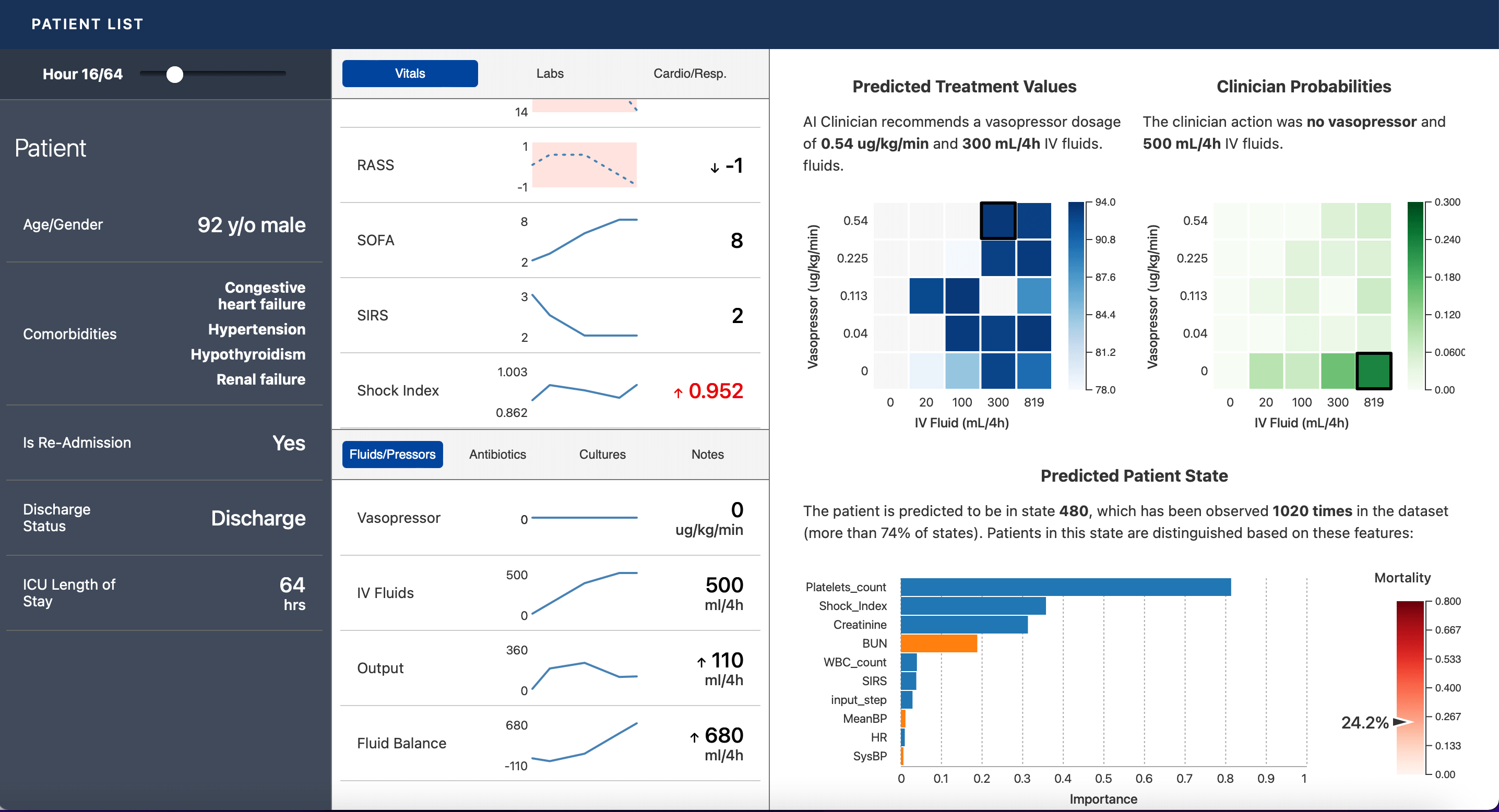Ignore, Trust, or Negotiate: Understanding Clinician Acceptance of AI-Based Treatment Recommendations in Health Care
Published at
CHI
| Hamburg, Germany
2023

Abstract
Artificial intelligence (AI) in healthcare has the potential to improve patient
outcomes, but clinician acceptance remains a critical barrier. We developed a
novel decision support interface that provides interpretable treatment
recommendations for sepsis, a life-threatening condition in which decisional
uncertainty is common, treatment practices vary widely, and poor outcomes can
occur even with optimal decisions. This system formed the basis of a
mixed-methods study in which 24 intensive care clinicians made AI-assisted
decisions on real patient cases. We found that explanations generally increased
confidence in the AI, but concordance with specific recommendations varied
beyond the binary acceptance or rejection described in prior work. Although
clinicians sometimes ignored or trusted the AI, they also often prioritized
aspects of the recommendations to follow, reject, or delay in a process we term
"negotiation." These results reveal novel barriers to adoption of
treatment-focused AI tools and suggest ways to better support differing
clinician perspectives.